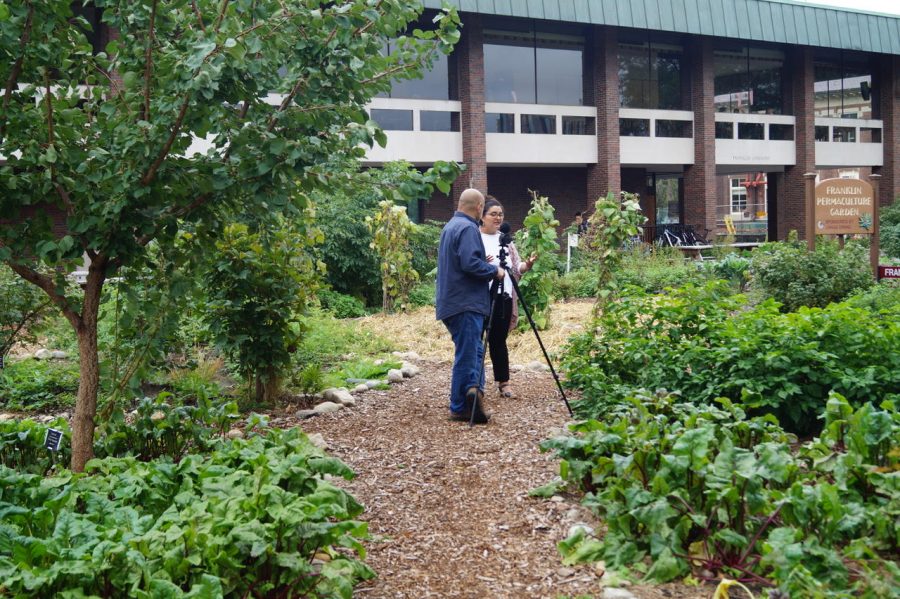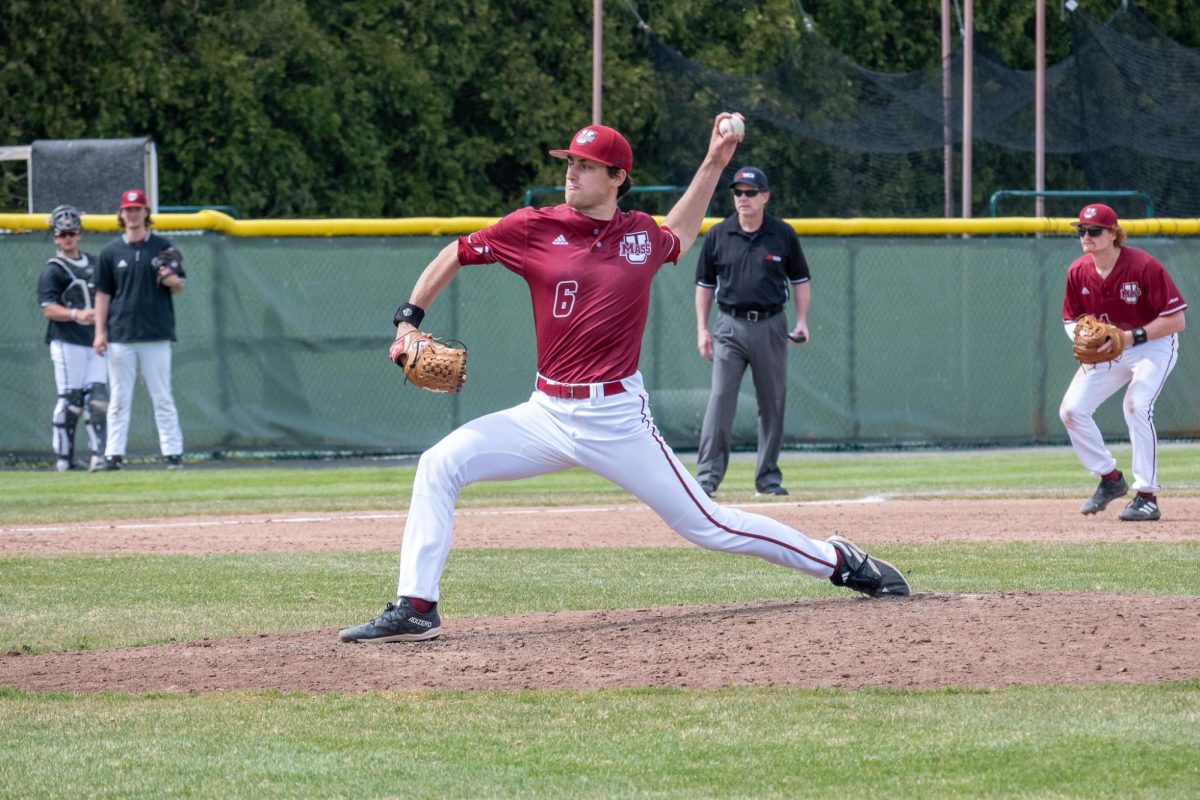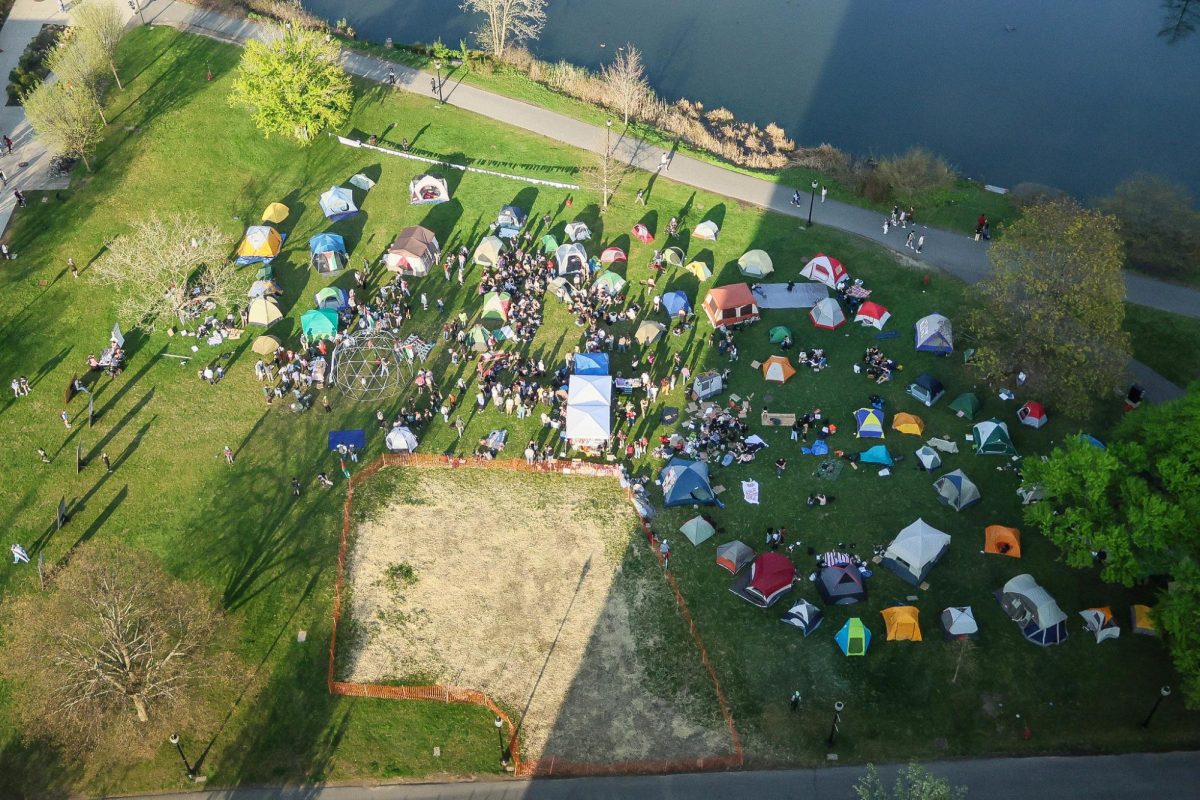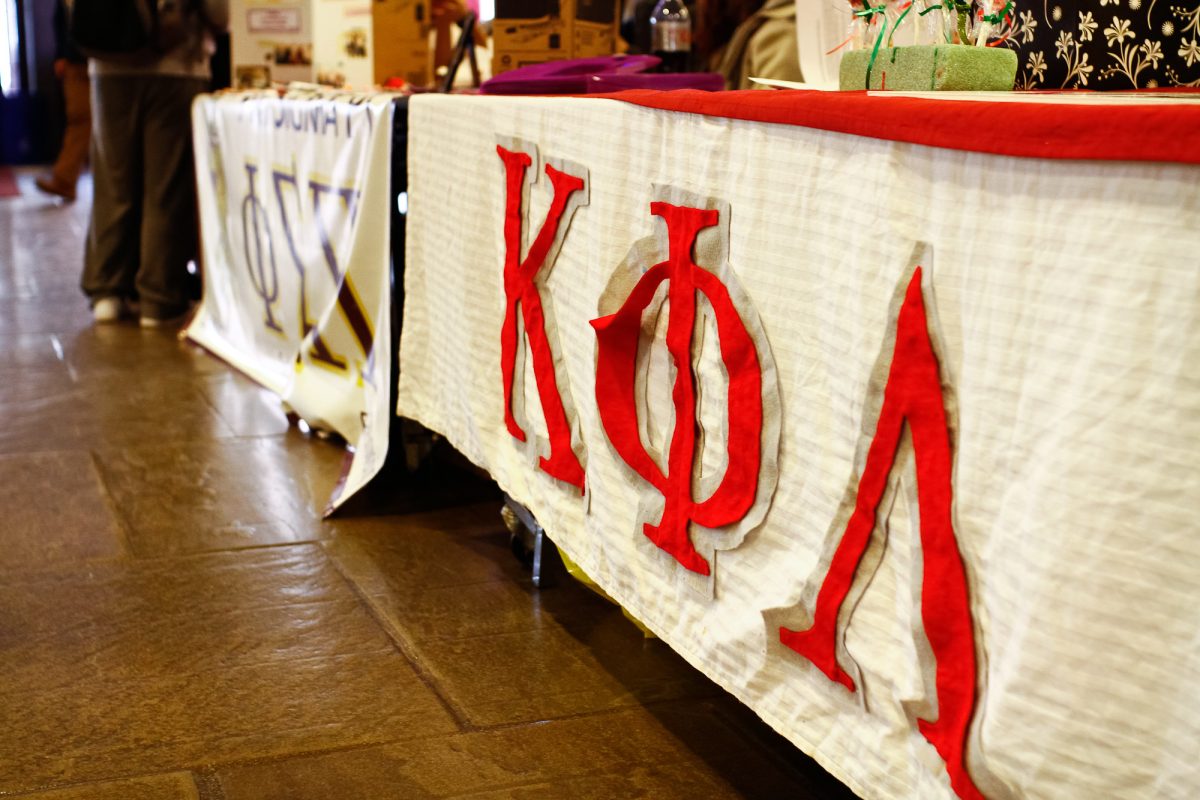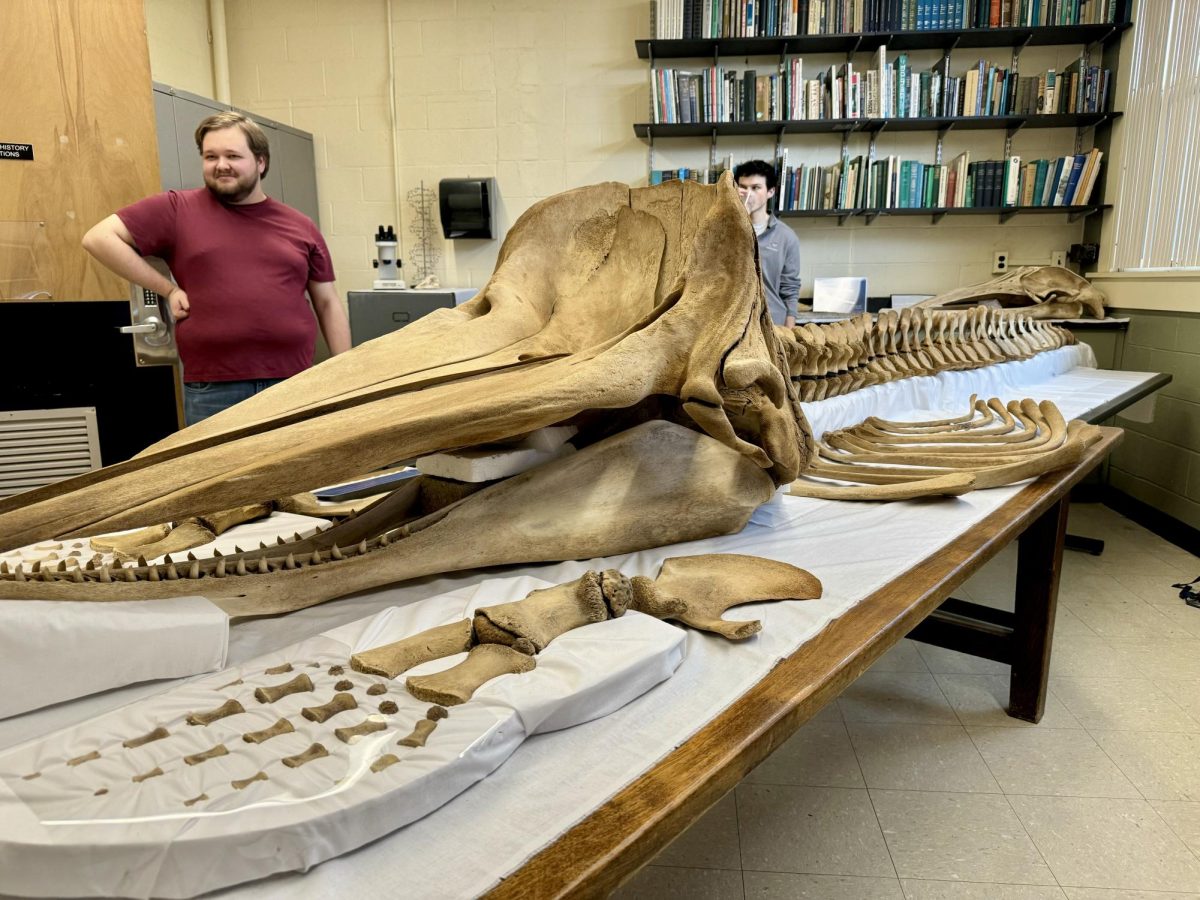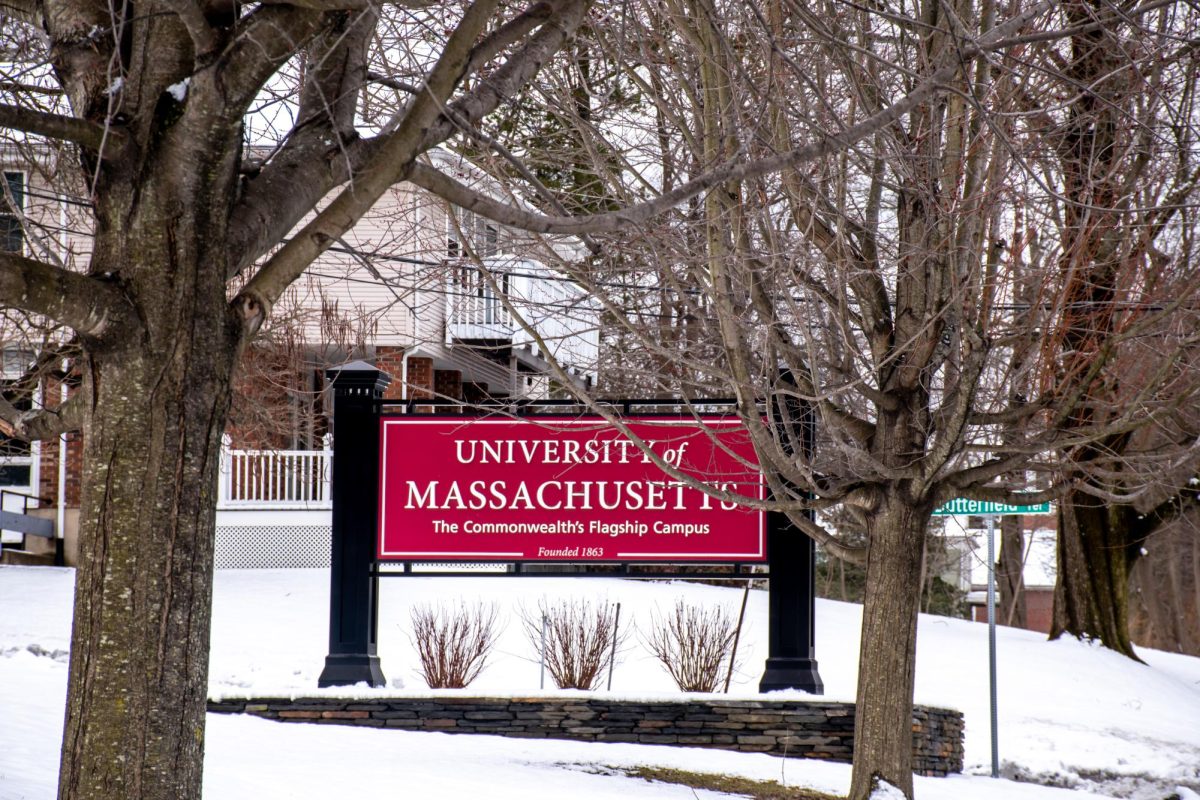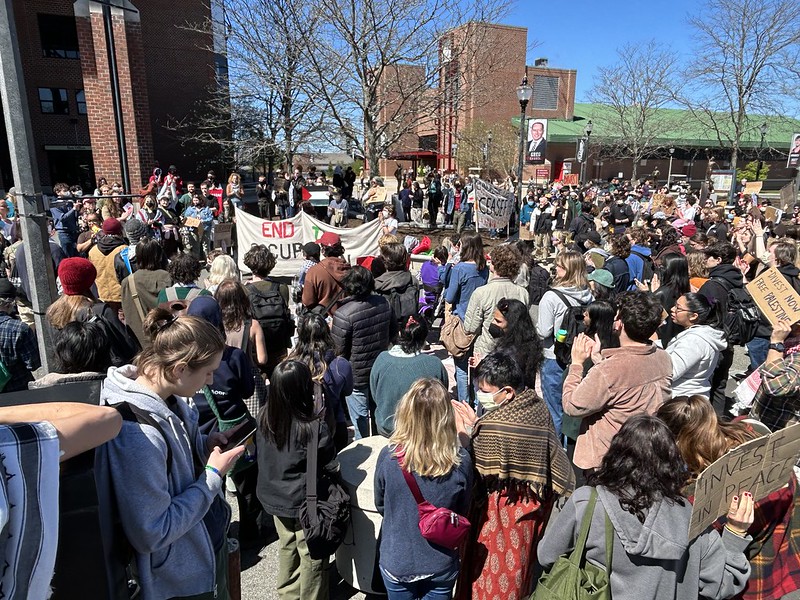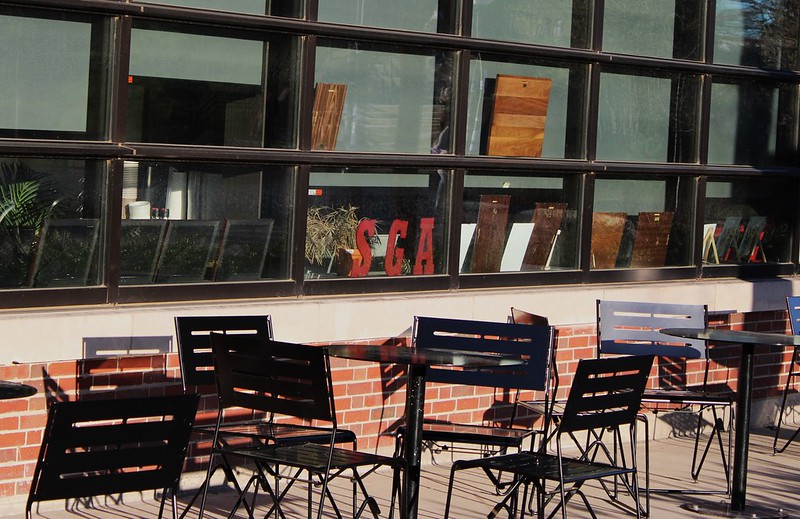People can now observe three student-led permaculture gardens at the University of Massachusetts anytime on the U.S. Department of Agriculture’s Climate Hubs website.
According to News and Media Relations, USDA made use of an innovative 360 tool, which allows the gardens to serve as model for sustainable and adaptive agriculture.
The three student-led permaculture gardens, near Franklin and Berkshire Dining Commons and Chancellor Subbawamy’s house, are featured in vivid 360-degree. Interviews with sustainability coordinators are also available.
According to Daniel Bensonoff, sustainability coordinator of campus gardens, the 360-degree footage was released on Feb. 6, 2019.
“Filming started [in] October of 2016,” Christine Hatch, UMass extension associate professor of geoscience department, said. Hatch contributed to this project as UMass’ liaison to the USDA Climate Hubs.
She said, “It took a lot of time to finish all interviews and take photographs.”
“With this 360-degree splendor, we are aiming to highlight climate adaptive practices in Massachusetts,” Hatch said.
“The idea of permaculture is for practitioners and farmers. On the website, they might go to tour for learning some permaculture techniques,” she said.
Permaculture is eco-friendly and it uses less chemicals. They are self-sustaining systems and rich in diverse crops. They also featured self-pest control; bugs can be taken away by combining certain crops, such as broccoli and strawberry plants. Integrated Pest Management is also featured, which uses pesticide based on the stages of plants’ growing instead of a set schedule, which is more common with traditional agriculture.
In August of 2011, Hurricane Irene flooded the gardens and spoiled harvests at UMass.
“It is quite important to prepare for an impact climate changes in Northeast area in the United States,” Hatch added.
Bensonoff oversees the five permaculture gardens, one near every dining common and the chancellor’s house.
“Most of crops at the gardens go to dining halls, but we sell some of them to students,” he said.
Bensonoff runs the student farmer’s markets that sell a variety of agricultural products with the UMass Student Farm.
“The most popular products are normal vegetables, like tomato and squash, but many people also buy other strange items such as elderberries and shitake mushrooms,” he said.
In the Permaculture Gardens, Bensonoff is teaching “STOCKSCH 198P Practicum- Permaculture Gardening at UMass,” where anyone can learn a principal of permaculture designs and sustainable agricultural skills.
“The gardens were maintained by students during the class time. In summer break, we hired some interns,” Bensonoff said.
In the class, students can enjoy making herbal remedies as well as cosmetics and creams. They also learn beekeeping, mushroom cultivation and plant propagation.
“I think many people, especially the young, feel responsible for climate changes. They are hungry for alternative way to maintain sustainability,” Bensonoff said.
Yurika Yamazaki can be reached at [email protected].

